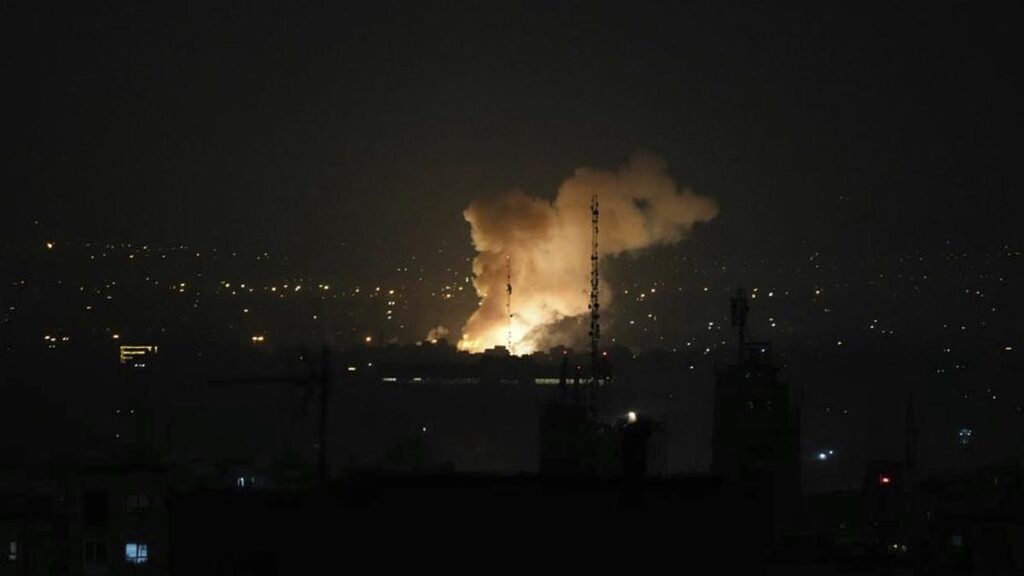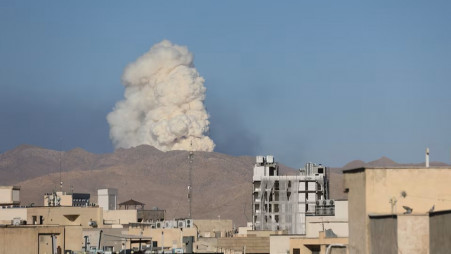The Israel-Iran conflict has once again spilled into global headlines, this time stirring serious concern from Gulf countries about the safety of nuclear facilities across the region. Saudi Arabia, along with five other Gulf states, has raised alarms over the potential risks posed to nuclear plants if the conflict escalates further. Their ambassadors expressed the fears in official meetings with international bodies, highlighting the dangers of any attack or accident involving nuclear facilities in a tense Middle East.
This growing anxiety underscores how regional conflicts are no longer limited to traditional military battlegrounds. Instead, they now touch on critical infrastructure, global energy security, and environmental safety. The issue of nuclear sites has become central in the geopolitical chessboard of the Middle East, and Gulf states are keen to ensure that the international community takes the matter seriously.
Israel-Iran conflict and its wider regional impact
The Israel-Iran conflict has been one of the longest-running and most complicated rivalries in the Middle East. Rooted in ideological, political, and security differences, the two nations have often confronted each other indirectly through proxies and cyber warfare. But recent escalations, including airstrikes, missile threats, and accusations of nuclear ambitions, have heightened tensions to unprecedented levels.
For Gulf countries, this conflict is not merely an external dispute. The Gulf region sits geographically close to both Israel and Iran, making it highly vulnerable to fallout, both literally and figuratively. The concern is not only about military clashes but also about the catastrophic consequences if a nuclear facility is damaged in the process.
Saudi Arabia’s leadership role
Saudi Arabia has positioned itself as the voice of reason in this debate, calling on international organizations such as the United Nations and the International Atomic Energy Agency (IAEA) to intervene. Saudi officials emphasized that nuclear facilities, regardless of which country they are in, should be treated as red zones during times of conflict.
The Saudi ambassador argued that the consequences of an accident or deliberate strike could extend beyond borders, causing humanitarian, environmental, and economic disasters that the region cannot afford. Saudi Arabia’s push for international guarantees reflects its wider strategy to balance security concerns while also pursuing ambitious domestic goals, such as nuclear energy development under its Vision 2030 plan.
Concerns from five other Gulf countries
Saudi Arabia was not alone in voicing concerns. The United Arab Emirates, Qatar, Kuwait, Bahrain, and Oman all joined in stressing the need for urgent global attention. Each of these states, in different ways, has strategic and economic vulnerabilities tied to regional stability.
The UAE, for example, operates its own Barakah nuclear power plant, which represents a major part of its clean energy transition. Any regional nuclear incident could affect public confidence and disrupt long-term energy strategies. Kuwait and Qatar, though smaller in land area, are particularly sensitive due to their proximity to Iran and reliance on cross-border trade routes. Oman and Bahrain, often seen as diplomatic mediators, underscored the importance of dialogue and restraint to avoid catastrophe.

The nuclear safety issue
The core of the Gulf states’ concern lies in nuclear safety. Experts point out that even a minor strike on a nuclear facility could release radioactive material, potentially contaminating air, water, and agricultural land. The region’s dense population centers, combined with its reliance on desalinated water from the Gulf, mean that any contamination could have devastating long-term consequences.
The Gulf states also worry about the risk of cyberattacks targeting nuclear facilities. Israel and Iran have already accused each other of engaging in cyber warfare. A cyberattack on nuclear systems could be as dangerous as a physical strike, leading to uncontrolled accidents.
Global response to Gulf concerns
The Gulf states’ joint statement has been welcomed by several international actors, though responses remain cautious. The United States and European Union expressed support for protecting nuclear sites but stopped short of issuing binding guarantees. The IAEA stressed that it monitors nuclear facilities closely and called on all parties to avoid actions that could compromise safety.
Russia and China, both of whom maintain strong ties with Iran, urged de-escalation but criticized what they described as “selective alarmism” by Western allies. For Gulf states, these mixed responses highlight the difficulty of achieving a unified global stance on such a sensitive issue.
Economic and humanitarian risks
The Israel-Iran conflict is not only a security issue but also a major economic concern for the Gulf. The region is the world’s energy hub, and any disruption due to conflict could send oil and gas prices soaring. A nuclear incident would not only threaten human lives but also devastate trade routes, ports, and aviation.
Humanitarian risks are equally pressing. The Gulf states host millions of expatriates from Asia, Africa, and Europe. An accident involving radiation could trigger mass evacuations, overwhelm healthcare systems, and create a refugee crisis. These scenarios underline why Gulf leaders are emphasizing preventive diplomacy over reactive measures.
Gulf countries’ call for international frameworks
In addition to immediate safety concerns, Gulf countries are advocating for new international frameworks to safeguard nuclear facilities during conflicts. They argue that existing treaties and conventions are insufficient to address today’s realities, where regional wars could have global consequences.
Saudi Arabia and the UAE, in particular, are pushing for a Middle East-wide agreement that would include all regional powers, including Israel and Iran. Such an agreement would establish rules against targeting nuclear facilities and ensure international inspections. However, the political will to achieve this remains uncertain, given the deep mistrust between Israel and Iran.
The path ahead
The Israel-Iran conflict shows no signs of disappearing soon, but the Gulf countries’ intervention marks an important step in broadening the conversation. By shifting focus from purely military dimensions to issues of nuclear safety, they are pushing the international community to recognize the far-reaching consequences of regional instability.
Whether these concerns will lead to concrete action remains to be seen. Much will depend on the willingness of major powers to take preventive measures and on the ability of Gulf states to sustain diplomatic pressure. For now, the message from the Gulf is clear: nuclear safety cannot be ignored in the shadow of conflict.
Conclusion
The Israel-Iran conflict is a reminder that wars in today’s world extend far beyond borders and battlefields. Gulf countries, led by Saudi Arabia, are highlighting a new dimension of security that connects human survival, environmental safety, and global stability. As the world watches developments in the Middle East, the question remains whether international leaders will act before it is too late.
Read More: The Role of Arabic Language and Dialects in Gulf Media



